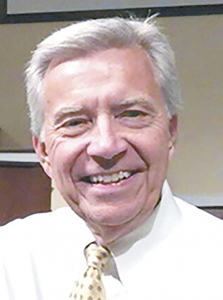By Mike Dawson
Pastor Emeritus, First Baptist Church, Columbia
Focal Passage: Ecclesiastes 7:11-22
 Remember learning to ride a bicycle? It was about balance: being balanced getting up on (and off) the bike, staying balanced while riding, and remaining balanced when braking.
Remember learning to ride a bicycle? It was about balance: being balanced getting up on (and off) the bike, staying balanced while riding, and remaining balanced when braking.
Leaning heavily to one side or the other meant falling over — resulting in “skint knees” and elbows or worse. In our focal passage (Ecclesiastes 7:11-22), King Solomon looks over his life and encourages his readers to avoid heavy leaning and seek a healthy balance instead. The text could fall into 5 ‘balancing acts.’
(1) Finding balance by comparing man’s wisdom to God’s work (verses 11-13). Solomon was “sometimes up and sometimes down” in these verses. He was certainly viewing life from ‘see-level’ in speaking of wisdom being profitable and a defense — as money is a defense (verse 12). But then Solomon looks UP, inviting us to consider the work of God which is permanent — in a day when nothing seems to last (verse 13).
(2) Finding balance by comparing “good days” to “bad days” (verse 14). Ol’ King Sol had begun chapter 7 by telling how one’s death-day could be better than their birthday, and how a funeral home could be better than a fun house (see verses 1-4). Now in verse 14 he picks up the same theme, saying that God blesses us by giving days of adversity as well as days of prosperity.
The late Bob Benson often spoke at various gatherings of adults, using a tool to teach this very truth. People drew a timeline of their lives, jotting down above the line major life-events that were “good.” Those that were “bad” were put below the time line. Bob then would talk about how many times God uses our worst days to teach great lessons. After such a session he would always have people come up and say that they needed to move many of the events below the line to above the line! Our worst days, when viewed in light of God’s work, can be considered our best days.
(3) Finding balance by comparing ‘good’ people to ‘wicked’ people (verses 15-18). Why do good people often die young while the wicked live on and on? (verse 15). This has been a puzzle for generations. Solomon doesn’t really answer it, but he does give some advice. “Don’t be overly righteous or overly wise” (verses 16-17). In other words, don’t be self righteous — or a wise guy! We find God’s balance by standing in awe of (fearing) Him. This is a key to strengthening and lengthening our lives (verses 16-18).
(4) Finding balance by comparing a righteous life to ruling leaders (verses 19-20). In our day of lying leaders, Solomon’s word is very pertinent: one wise (righteous) man is better than many wise-in-their-own-eyes rulers (verse 19). The Apostle Paul affirmed the old king (verse 20) by also writing that “there is none righteous, no, not one” (Romans 3:10).
(5) Finding balance by comparing getting ‘cussed out’ to being the ‘cusser’ (verses 21-22). In our final two verses Solomon tells us not to pay attention to people who ‘bad-mouth’ us. We’ve no doubt bad-mouthed others at times, so we shouldn’t let let those who curse us control us. B&R — Dawson is pastor emeritus at First Baptist Church, Columbia, and also serves as transitional interim around the state.

